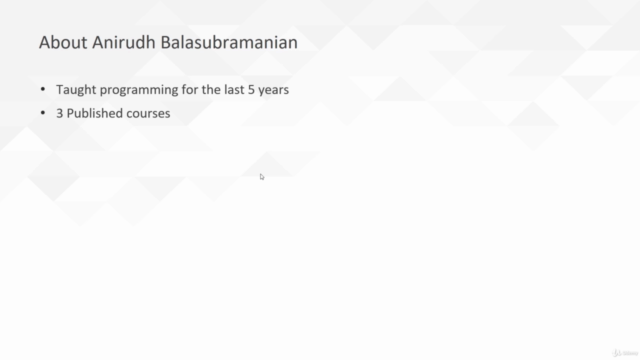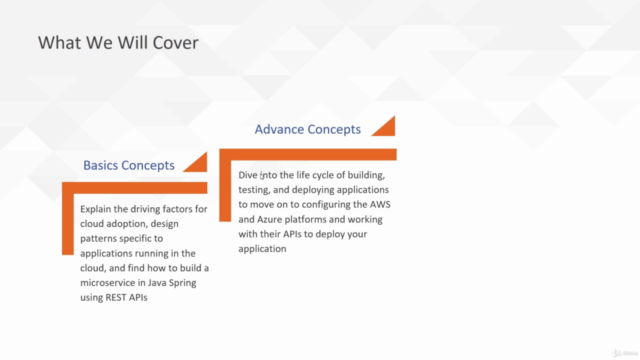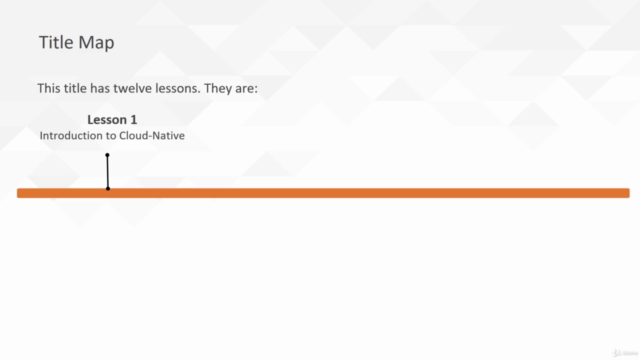Cloud-Native Applications in Java

Why take this course?
🌩 Master Cloud-Native Applications with Java at Packt Publishing
Course Title:
Cloud-Native Applications in Java
Course Headline:
🎯 Build Highly Scalable Microservice-Based Applications with Java for the Cloud
Course Description:
In today's fast-paced business environment, cloud-native applications are the backbone of digital transformation. These applications are designed to be resilient, scalable, and secure, leveraging the best that cloud platforms have to offer. With this comprehensive course from Packt Publishing, you'll gain a deep understanding of how to build such applications using Java.
Why Cloud-Native?
- Scalability: Your applications can grow with your business needs.
- Resilience and Reliability: Build systems that are fault-tolerant and self-healing.
- Agility: Innovate and deploy new features at the speed of light.
Course Highlights:
- 🔍 Understand Cloud Adoption Drivers: Discover why businesses are moving to the cloud.
- 🚀 Cloud Deployment Paradigms: Learn how deployment differs in the cloud.
- ☁️ Master Microservices with Java Spring: Design and implement robust microservices using REST APIs.
- 🛠️ Automated Build, Test & Deployment: Streamline your CI/CD pipelines for maximum efficiency.
- 🌐 AWS & Azure Mastery: Configure and deploy applications on leading cloud platforms.
- 📈 Efficient Code Writing: Follow best practices for API design and performance.
- 🔄 Migrate to Cloud-Native: Transform traditional monolithic applications into distributed, cloud-native solutions.
By the end of this course, you will be equipped to:
- Build secure, scalable, and maintainable cloud-native applications using Java.
- Deploy these applications on major cloud platforms like AWS and Azure.
- Monitor and ensure high availability of your applications.
About the Authors:
Ajay Mahajan:
A Distinguished Member of Technical Staff (DMTS) at Wipro Technologies, Ajay is a seasoned technologist with a rich history in the world of enterprise Java applications, spanning over 19 years. His role as Chief Technologist for the retail vertical involves guiding clients through the adoption of cloud-native and digital architectures.
Munish Kumar Gupta:
As a Lead System Architect at Visa, Munish's expertise lies in solution architectures, application performance engineering, and managing application infrastructure. He is an advocate for open-source technologies and shares his insights through his blogs on technology trends and application performance.
Shyam Sundar:
Shyam is a Senior Architect with Wipro Technologies and a member of the Emerging Technologies Architecture group. He has a deep understanding of client-side and cloud technologies and is dedicated to helping teams incorporate new and emerging tech into their projects.
Anirudh:
Anirudh brings multiple years of experience in Python, HTML, and Java to the table. His passion for teaching and sharing knowledge has made him a respected figure in the field, with a focus on nurturing both novices and experienced professionals in computer science. He prides himself on preparing meticulous courses that are as enlightening as they are enjoyable to follow.
Ready to embark on your journey to becoming a cloud-native Java developer? Enroll in this course today and transform your application development skills for the future! 🚀💫
Course Gallery




Loading charts...